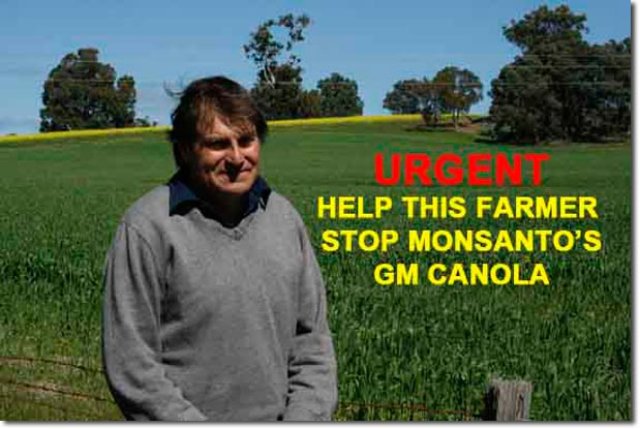
Organic farmer Steve Marsh has lost his case in the Western Australian Supreme Court after seeking compensation for his crops being affected by genetically modified (GM) seeds.
Organic farmers fear the case will have dire consequences for non-GM farmers everywhere.
In a case which was the first of its kind, Marsh brought legal action against his neighbour Michael Baxter, who took advantage of changes in state legislation and began growing GM canola on his adjacent farm in 2010. Some seeds blew over the road onto Marsh’s property.
The transference of GM seeds led to Marsh losing organic certification of 70% of his rye, oats and sheep property in Kojonup, WA. The National Association of Sustainable Agriculture Australia (NASAA) and its subsidiary certifying body, NASAA Certified Organic Pty Ltd (NCO), have a zero-tolerance policy on the issue of crop contamination, resulting in the decertification of Marsh’s stock.
The economic loss of certification is calculated at $85,000, not including the consequent legal costs that Marsh and his family have incurred since. Faced with these losses, and barred from the possibility of taking direct action against Monsanto, the giant agribusiness company which supplied the GM canola, Marsh was forced to take legal action against his neighbour.
Terry Redmond, who as then state agriculture minister oversaw the introduction of GM canola into WA, has previously laid responsibility for Marsh’s decertification on the NCO’s zero-tolerance policy, stating such standards are “unrealistic” and need to be amended to allow for certain “thresholds” of contamination to be permitted.
Justice Kenneth Martin agreed that NCO’s decision was “unjustified” and ruled on May 28 that Baxter, whose farming of GM the law permits, could not be held legally responsible for Marsh’s loss of income.
Outside the courtroom, Julie Newman from the National Association of Concerned Farmers made clear the overall absence of legal protections for non-GM farmers, who now face new challenges securing insurance for their farms under conditions where “GM contamination is an inevitability … all costs are to be paid by the non-GM farmer. How are they meant to protect themselves?”
After the court ruling, GM-free campaigner Shirley Collins told Green Left Weekly: “What’s to stop GM fields encircling the non-GM or organic farms with the same outcome? With decisions like today’s, that is the very real situation we face. Our challenge now is to get this [Liberal] government out and re-instate the state-wide moratorium on all GM crops. That's the challenge ahead of us.”